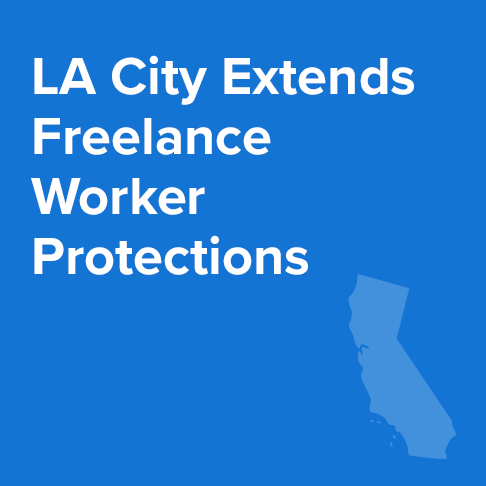Special Report: Entertainment – Soundstage Gold Rush

As seen in Los Angeles Business Journal.
While most industries prepare for an economic slowdown amid higher interest rates, Hollywood is experiencing an ongoing boom that fills its Los Angeles production hub to overflow levels.
The video-streaming revolution has set off a wave of big-budget TV programs and movie production that mostly piles on top of pre-existing Hollywood output and is a catalyst to expand the local soundstage infrastructure.
The Los Angeles region is the global leader in soundstage capacity, with 5.4 million square feet of stage space, surpassing competing production centers: 4.7 million square feet in the entire United Kingdom, 3.3 million in Toronto/Ontario, Canada and 2.4 million square feet in New York. In Los Angeles, that’s 398 soundstages at 57 facilities, according to FilmLA, the nonprofit production-permitting agency.
The emphasis is on “certified” soundstages that are permanent Hollywood facilities with fire department approvals in-hand, versus multi-purpose warehouses needing safety approvals for each usage by films and TV programs. A raft of building underway or on the drawing boards will increase the number of certified soundstages by 27% in a few years, FilmLA estimated earlier this year, which the industry feels is a long-overdue expansion.
In Hollywood, “soundstages have been underbuilt over the years,” said Adam J. Fowler, founding partner of CVL Economics, a West Hollywood-based – consulting firm active in entertainment.
But now “we have a lot of industrial space that is being repurposed,” he added. By most estimates, soundstage occupancy is in the low-to-mid 90s percentage-wise across the region, which is essentially full capacity.
Lack of land
The building boom in the historical Hollywood work region targets infill locations within urban areas, since vacant land is scarce.
One such project looking to take advantage of increasing demand is a plan for soundstages at the site of a Los Angeles Times printing plant at 8th and Alameda streets. Atlas Capital Group plans to start with six soundstages and eventually expand to 17 at the site. Also within the traditional work zone, massive upgrading of existing soundstage facilities is underway.
“The biggest action continues to be urban infill campuses” in the traditional Hollywood production zone, according to Carl Muhlstein, international director at brokerage Jones Lang LaSalle Inc.
“Those are the ones in the heart of the eco-system and the easiest for talent to interact with.”
But due to high demand and a lack of space, companies are expanding outside the traditional zone to areas like Santa Clarita Valley, Pacoima and even the Inland Empire. New ventures continue to percolate; in early October, a multi-soundstage facility dubbed Super Studios was proposed for Banning.
There’s little concern about overbuilding, experts agree, because production demand is ongoing. TV series, which are a staple of Hollywood, can be long-running tenants in the same soundstages for years or even decades.
In one measure of growing production heft, Los Gatos-based Netflix Inc.’s programming budget, which skews heavily to original productions though also includes acquiring existing content, skyrocketed to $17 billion annually these days, about double its 2016 overall content budget.
Basic cable TV channel operator FX Networks now counts well over 500 big-budget, scripted prime-time caliber TV series annually, compared to just 182 series in 2002. FX Network announces industry TV series output data annually.
Those figures are global, but Los Angeles gets a big chunk. On the streaming side, these include streamed TV shows such as “Star Trek: Picard” on Paramount+ and “American Horror Stories” anthologies on Hulu that are produced locally. Soundstages are also used to produce music videos, commercials and industrial films.
PE interest
Private equity firms — purely financial investors — are leading the charge to build and upgrade soundstages, attracted by an industry with solid production leasing demand but inadequate infrastructure. They are also keying in on the industry’s fragmented operators and the expectation of an easy exit as one or more players buy competitors to bulk up.
The largest for Los Angeles appears to be Hackman Capital Partners and owned-affiliate MBS, which have the Culver Studios, Radford Studio Center, Television City Studios, MBS Media Campus, Raleigh Studios, Saticoy Studios and Sony Pictures Animation Studios. New York-based Square Mile Capital Management partners with Hackman on studios. Earlier this month, Hackman wrapped up a $1.6 billion capital raise for its HCP Studio Fund from a diverse group of institutional investors. HCP Studio Fund has a global focus but locally will be connected to Radford Studio and Saticoy Studios.
Last year, Hackman unveiled a $1.25 billion investment to upgrade Television City, a facility purchased in 2019 that was previously owned by broadcaster CBS.
Leading role
Despite chronic under-investing in infrastructure, Los Angeles is still well positioned to retain its leadership in TV and film production. That’s because the industry’s ecosystem is anchored in the Hollywood region, led by the five major movie studios: Walt Disney Studios and Warner Bros. in Burbank; Paramount Pictures in Hollywood; Sony Pictures Entertainment in Culver City; and Universal Pictures.
Their own physical studio lots house productions and also provide convenient logistics support for their TV and film projects being made at nearby soundstages. If a production needs hands-on inspection, executives don’t have to take airplanes to visit the set.
Another magnet is the California financial incentive program offering hundreds of millions of dollars in tax credits annually, which is authorized through 2025 and likely will be extended. California launched the program in 2009 to combat financial lures dangled by other states.
“There are three legs of the stool: incentives, crew and infrastructure,” said Hollywood finance executive Joseph Chianese. “L.A. obviously has the crews. The infrastructure is being upgraded. As far as incentives, the state and governor have clearly been improving programs and it’s had bipartisan support.”
Chianese is senior vice president and practice leader of production incentives at Entertainment Partners, a production finance, management and enterprise services firm based in Burbank.
While the entertainment and streaming industry has plenty of positive economic momentum, some in the industry grumble that government erects unnecessary barriers. There are gripes that state and local governments are more concerned with supporting other projects, such as affordable housing, than helping big-employer Hollywood battle government red tape. Further, the state of California sporadically considers legislation undercutting talent exclusivity in employment contracts and in the gig economy covering part-time workers, which irks many in the industry.
The production boom drives up wages, and Hollywood now talks up the notion of putting a lid on spiraling content costs.
Regarding rich content spending, Netflix reportedly shelled out $465 million for current Daniel Craig mystery “Glass Onion: A Knives Out Mystery” (and sequel rights) after its predecessor movie was made for just $45 million. Elsewhere, Amazon Studios spent a reported $465 million on its “Lord of the Rings: Rings of Power” miniseries, double the cost of a glossy Hollywood sci-fi blockbuster movie. And streamers routinely hire pricey theatrical talent for what are made-for-streaming productions, such as the Martin Scorsese-driven, $170 million-budgeted mafia movie “The Irishman” that sported a star-heavy cast. However, competitive pressures that drive spending remain hot, and so Ari Emanuel, chief executive of Beverly Hills-based Endeavor Group Holdings Inc. ,which owns talent agency WME, told an investor conference in September “not to burst anybody’s bubble, I don’t see it.”
Emanuel said that for an unnamed streaming show that WME worked on, the cost reached $17.5 million an episode, which is about quadruple the spending for a typical hour-long cable or broadcast TV drama program.
“Last time I checked, that’s more,” Emanuel said dryly.
There are pockets of genuine expense reductions in Hollywood, though. Major studio owner Warner Bros. Discovery is pursuing post-merger cost cuts, but spotty reductions are exceptions to the bigger trend of escalations.
Philip Sokoloski, vice president of Integrated Communications at FilmLA, sees the current soundstage boom as critical for the region to maintain its leadership. A FilmLA analysis found that certified soundstage square-footage capacity grew just 4% in the Los Angeles area since 2019, versus 34% in the United Kingdom and 43% in Toronto/Ontario, Canada.
“If we don’t invest in modern soundstage infrastructure, we won’t attract the kind of projects that we want,” Sokoloski said. “We require them to be globally competitive.”
Related Content

Production Incentives Update: December 2023

HMRC Announces Changes to Claiming UK Creative Sector Tax Incentives

BSO and CMPA Launch New BSO-CMPA Black Producer Accelerator Program

Georgia Film Tax Credit Bill Fails

Japan's Latest Film Tax Incentive Sets the Stage for Global Productions

SB 1162: California Pay Data Reporting Law FAQs

California Pay Data Reporting Law Updates and Resources

Do the Math: Production Accountant Shortage Equals New Hollywood Careers

The Cathy Durant Show: Featuring John Hadity

Production Incentives Update: October 2023

State-by-State Guide to Disability Insurance for Production Accountants

NFTS and Entertainment Partners (EP) Establish Partnership to Support the Future of Film and Television Production

NFTS, Entertainment Partners establish partnership

NFTS and Entertainment Partners (EP) establish partnership

Production Incentives Update: September 2023

Meet the Paymasters

